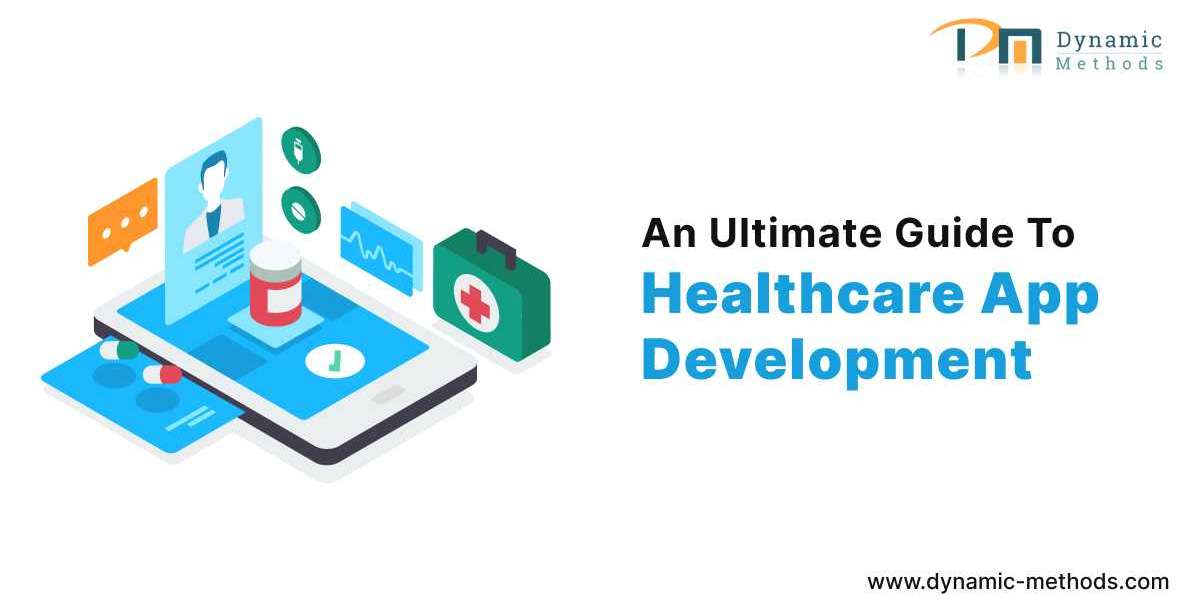Importance of Healthcare Apps
Healthcare apps provide many benefits, including increased access to healthcare services, better patient engagement, better health monitoring, and better communication between patients and doctors. These apps empower users to take control of their health and wellness by providing convenient access to medical information, appointment scheduling, medication reminders, and telemedicine consultations.
Steps to Develop a Healthcare App Development
Research and Planning
Before starting healthcare app development, thorough research and planning are necessary. This includes identifying the target audience, understanding their needs, analyzing competitors, and defining the goals and objectives of the mobile apps.
UX Design and Prototyping
The next step is to create wireframes and prototypes to visualize the layout and functionality of the app. User experience (UX) design plays a vital role in ensuring that the app is intuitive and easy to navigate for both patients and providers.
App Development
Once the design is complete, the development phase begins. This involves coding the features and functionality of the app for healthcare as per the project specifications. Rapid development methods are often used to iteratively build and refine an app.
Testing and Quality Assurance
Before launching the app, it is thoroughly tested to find and fix any flaws or difficulties. This includes functional testing, usability testing, performance testing, and security testing to ensure that the app meets industry standards and regulatory requirements.
Deployment
Once testing is complete, the app is ready for deployment to an app store or enterprise distribution platform. App Store Optimization (ASO) techniques can be used to increase the visibility and discoverability of an app.
Key Features of Healthcare Apps
Healthcare apps offer a myriad of features designed to improve patient care, enhance communication, and streamline administrative tasks. Some essential features include:
- User authentication and data security: Ensuring secure access to sensitive health information through strong authentication mechanisms and encryption protocols.
- Electronic health record (EHR) integration: Seamless integration with electronic health record systems to securely access, update, and share patient data.
- Appointment Scheduling and Reminders: Allows users to schedule appointments, set reminders, and receive notifications for upcoming medical visits.
- Telemedicine and virtual consultations: Facilitating remote consultations with healthcare providers through video conferencing or messaging platforms.
- Health tracking and monitoring: Enabling users to track their health metrics, such as heart rate, blood pressure, and physical activity, and receive personalized insights and recommendations.
Technologies Used in Healthcare App Development
Healthcare mobile app development leverages a wide range of technologies to provide innovative and impactful solutions. Some commonly used techniques include:
- Mobile Platform (iOS and Android): Developing native or cross-platform apps compatible with popular mobile operating systems.
- Wearable device integration: Integration with wearable devices like fitness trackers and smartwatches to collect real-time health data.
- Artificial Intelligence and Machine Learning: Using AI and ML algorithms to analyze medical data, provide clinical insights, and personalize treatment plans.
- Blockchain for data security: Applying blockchain technology to ensure the integrity, privacy, and traceability of health care data.
Challenges in Healthcare App Development
Despite the many benefits, healthcare app development is not without challenges. Some common obstacles include:
- Regulatory Compliance (HIPAA, GDPR): Adhering to strict regulatory requirements regarding patient privacy, data protection, and security standards.
- Data Privacy Concerns: Addressing concerns related to the collection, storage, and sharing of personal health information while maintaining confidentiality and anonymity.
- Interoperability Issues: Overcoming interoperability challenges to enable seamless data exchange and communication between different healthcare systems and devices.
- User adoption and engagement: Ensure widespread adoption and sustained engagement among users to maximize the impact and effectiveness of the app.
Best Practices for Healthcare App Development
To overcome these challenges and ensure the success of healthcare app initiatives, developers should follow best practices such as:
- User-centered design: Prioritizing user experience and designing intuitive interfaces that meet the needs and preferences of diverse user groups.
- Regular updates and maintenance: Constantly monitoring and updating the app to meet emerging needs, fix bugs, and add new features and functionalities.
- Collaboration with healthcare professionals: Collaborating closely with healthcare providers, physicians, and other industry experts to gather insights, validate solutions, and ensure clinical relevance.
- Continuous feedback and improvement: Soliciting feedback from users, analyzing usage patterns, and continuously improving the app based on real-world insights and user feedback.
Case Studies: Successful Healthcare Apps
Many healthcare apps have achieved significant success by effectively addressing key challenges and providing tangible benefits to users. Some notable examples include:
- MyChart: A patient portal app, developed by Epic Systems Corporation, that allows users to access their medical records, schedule appointments, and securely communicate with their healthcare providers.
- Ada Health: An AI-powered symptom checker app that uses machine learning algorithms to provide personalized health assessments and recommendations based on user input.
- Doximity: A professional networking platform for healthcare professionals that facilitates communication, collaboration, and knowledge sharing within the medical community.
Future of Healthcare App Development
The future of healthcare application development holds tremendous potential for innovation and growth. Advances in technology, such as wearable devices, IoT sensors, AI-powered diagnostics, and blockchain-based health records, will continue to reshape the healthcare landscape and improve patient outcomes.
Conclusion
In conclusion, healthcare app development has immense potential to revolutionize the way healthcare services are delivered, accessed, and managed. By leveraging cutting-edge technologies, following best practices, and solving key challenges, developers can create impactful solutions that improve patient outcomes, increase provider efficiency, and transform the healthcare experience for all stakeholders.
If you need a healthcare app development solution for the healthcare sector? Dynamic Methods provides the best mobile application development services to our clients worldwide, feel free to contact us.



